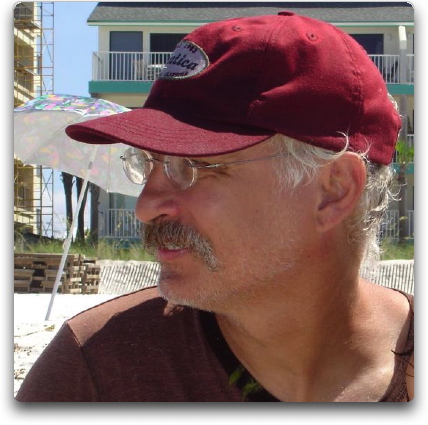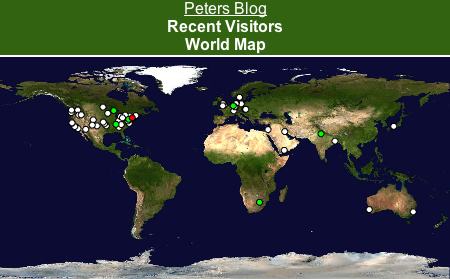I have written about the effects of the catastrophic meltdown of the U.S. financial market on American academic institutions in my post dated Dec. 9, 2008. Since, the addenda have surpassed the original post. Private and public colleges and universities have become deeply affected by the credit crunch and loss in revenue. This is a time for truthful, unambiguous and clear messages.
The other day, I leaved through the official newspaper of a major private research university I was visiting. I found only great news on the front page. We are doing well! Two pages into the paper, psychologists advised the readership on stress management in hard economic times. The next pages were filled with accounts from employees on how they cope with their current financial constraints and evaporating retirement plans.
I was reminded of Spring 1986. In the aftermath of the nuclear reactor meltdown at Chernobyl near Kiev in the Ukraine, clouds of radioactive material dusted Germany and her neighbors. Dosimeters rang alarms. Public health agencies were expected to advise the population on the impending risk and measures of prevention.
The incident led to an avalanche of conflicting messages across countries. The severity of the outlook depended on each nation's standards. The ideas about acceptable radiation absorbed doses varied. Hence, milk was pronounced safe in Switzerland, whereas across the Rhine in Germany the judgments varied from discouragement to restraint consumption, depending of the color of state government. In states where the environmentally conscientious Greens party shared gubernatorial powers, regular fresh milk was taken from the shelves. Other states left the decision to the consumer. Zero becquerel milk sold in no time for six times the price of untested milk.
Adding to the confusion, mixed messages were issued in the same jurisdictions. Some state health agencies of the Federal Republic advised citizens that they had nothing to worry about. But, just as a precaution, parents might consider not to let their children play in their sandboxes outside. The public was left profoundly alarmed and bewildered. It took a prolonged and concerted effort on state and federal levels to eventually calm the situation down.
In retrospect, the reactor accident in Chernobyl appears to have had no detectable averse effects on public health in Germany. However, the next time opposition parties formed a national government, the Greens became junior coalition partner, garnering one of the most prestigious ministerial offices. That is, Joschka Fischer, who held the office of Minister of Environmental Protection in the state of Hesse at the time of the Chernobyl accident, was appointed Vice Chancellor of the federal government and Minister of Foreign Affairs, the portfolio corresponding to the Secretary of State of the United States. Joschka Fischer, who had gained fame and notoriety as a radical leader of the 1960s student revolt, performed exceptionally well in his important new job, despite all reservations. This constituted a great success for the small party which was hitherto seen as inept to govern with national responsibility.
The lesson to be learned for the present day is that in times of crisis leaders of enterprises large and small, private and public, can ill-afford mixed messages. If conclusive answers cannot be given, we expect to be told the reasons. Moreover, we anticipate from outstanding leaders that they do not hesitate to deliver bad news in a timely fashion. America's colleges and universities educate tomorrow's leadership. Their senior academic executive officers must serve as accomplished role models of leadership at a time of great challenges.
Addenda
- In contrast to Germany and her neighbors, the impact of the radioactive fallout in the wake of the reactor accident was catastrophic for the former Soviet Union. Some estimates put the death toll as high as 50,000 citizens. Alison Smale published an informative article entitled "Revealing Secret Spots That Evoke Dark Secrets" about the grave consequences of this experiment gone wrong in today's issue of The New York Times (08/25/09).
- Chloe White reported in her post entitled "Carson-Newman revealing facing funding issues" on knoxnews.com dated Sep. 19, 2009, about the cost-cutting measures with which Carson-Newman College in Jefferson City, Tennessee, plans to fight its budget shortfall. President J. Randall O'Brien told faculty and staff last August "any institution that believes it can remain the same in this economy is delusional." Mark his words (09/21/09).
- After more than a decade of boom comes the bust: Vanderbilt University is in the process of eliminating more than 1,000 jobs in mass lay-offs at its medical center this fiscal year. This time Vice Chancellor of Health Affairs, Dean of the Medical School and CEO Jeffrey Balser chose not to mince words. According to The Tennessean's post with the title "Vanderbilt University Medical Center eliminates 275 jobs of 1,000 to be cut" published online Sep. 20, 2013, Balser noted: “Some have been concerned that VUMC has been ‘too transparent’ about the need to reduce staffing,...” Now it seems there will be no holding back (02/20/2013)!



No comments:
Post a Comment